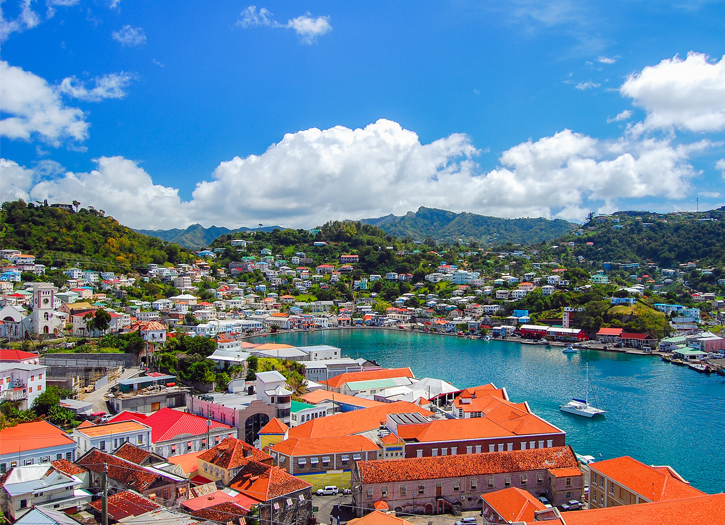The COVID-19 pandemic in Grenada is part of the ongoing global viral pandemic of coronavirus disease 2019 (COVID-19), which was confirmed to have reached Grenada on March 22, 2020. Despite lockdowns and social distancing protocols, it appeared to have reached the level of community spread within one month.However, cases continued to decline through May, and by June 18, the Ministry of Health declared zero cases—indicating Grenada’s efforts were successful in ridding the country of the virus.
The government of Prime minister Keith Mitchell instituted a series of increasingly tightening social distancing and quarantine policies that eventually led to a full country lockdown. Prior to the island’s first case (but in anticipation of it occurring), schools and public gatherings were banned and social distancing encouraged on March 14. It was known that at least three persons who later tested positive to Covid-19 elsewhere had traveled through Grenada. Following the first confirmed case on March 22, the airport was closed to commercial traffic and remained closed indefinitely.
On March 25, emergency powers were implemented to restrict movement and nightly curfews. Businesses unable to enforce social distancing were ordered to be closed.These were quickly revised into a full, 24-hour lockdown on March 30, where all citizens were to remain in their homes and all business were closed except essential services. As on 16 November, total number of cases in Grenada was 33, with 4 active case and 29 cures. The government of Prime minister Keith Mitchell instituted a series of increasingly tightening social distancing and quarantine policies that eventually led to a full country lockdown.
As with the rest of the world, the Coronavirus pandemic wreaked havoc on Grenada’s economy, least not the ripple effects of a collapsed tourism industry. On March 20, 2020, the government announced a stimulus package to provide income support to small businesses, suspension of various taxes, and unemployment benefits to eligible citizens, which took about a month to fully roll out.Seven sub-committees have also been set up to focus on the needs of tourism & citizen by investment, construction, education, small businesses, agriculture and fisheries, manufacturing, and e-commerce. To help meet the short-falls, Grenada a received rapid loan of US$22.4 million from the IMF, in a package aimed at the Eastern Caribbean countries of Dominica, Grenada, and St. Lucia, more than doubling the previous US$14.38 million Grenada owed to the lender.Another loan of $5.9 million was secured through the Caribbean Development Bank.
On March 22, Grenada’s international airport and Carriacou’s regional airport were closed to all commercial passenger traffic, and remained so through the 2020 summer. With the stoppage of passenger flights, courier mail services (such as the USPS and Royal Mail) were halted, with only private courier flights like Fed-Ex and DHL allowed.On May 29, it was announced that June 30 was the anticipated opening of the borders (and thus, airports), with the expectation that all incoming passengers would receive a temperature check, rapid antibody test, and would self-quarantine for 14 days after arrival. A mobile app will be employed to monitor symptoms and movements of individuals during their quarantine period.
On June 26, Clarice Modeste-Curwen, Minister for Tourism and Civil Aviation, announced that the airports were prepared to reopen. However, in a speech to the nation two days later (June 28), Prime Minister Keith Mitchell stated international travel would likely not commence until early August, citing the resurgence of the virus in the United States (a major source country for Grenada’s tourism) and the refusal of international airlines to require passenger testing prior to boarding.
Public bus transport was allowed to recommence on June 1, but with reduced passenger loads (12 people max, including driver and conductor—later increased to 15).On June 10, the government claimed to have paid $360k in stimulus to bus drivers, equating $800/month per bus.The bus association has thanked government for this stimulus, but (noting the stimulus will end once bus operations restart) they requested a price increase of $0.50/passenger going forward to offset losses of enforced protocols, emergency power curfews, and suppressed passenger traffic in general.No agreement was reached, so buses restarted operation without further government support.







Add Comment
You must be logged in to post a comment.